Daniel Lago is one of the vibrant representatives of the new generation of tattoo artists, skillfully blending various styles, from realism and anime to neo-traditional and lettering. His journey into the world of tattoos began in 2016 in Venezuela, where he became a self-taught master, learning techniques through tutorial videos. In a short time, he progressed from a novice to a professional, gaining experience in some of the country's most renowned studios and winning several awards at conventions. In this interview, Daniel will share his insights on the tattoo industry, discuss his inspirations, and explain the importance of experimenting with different styles.
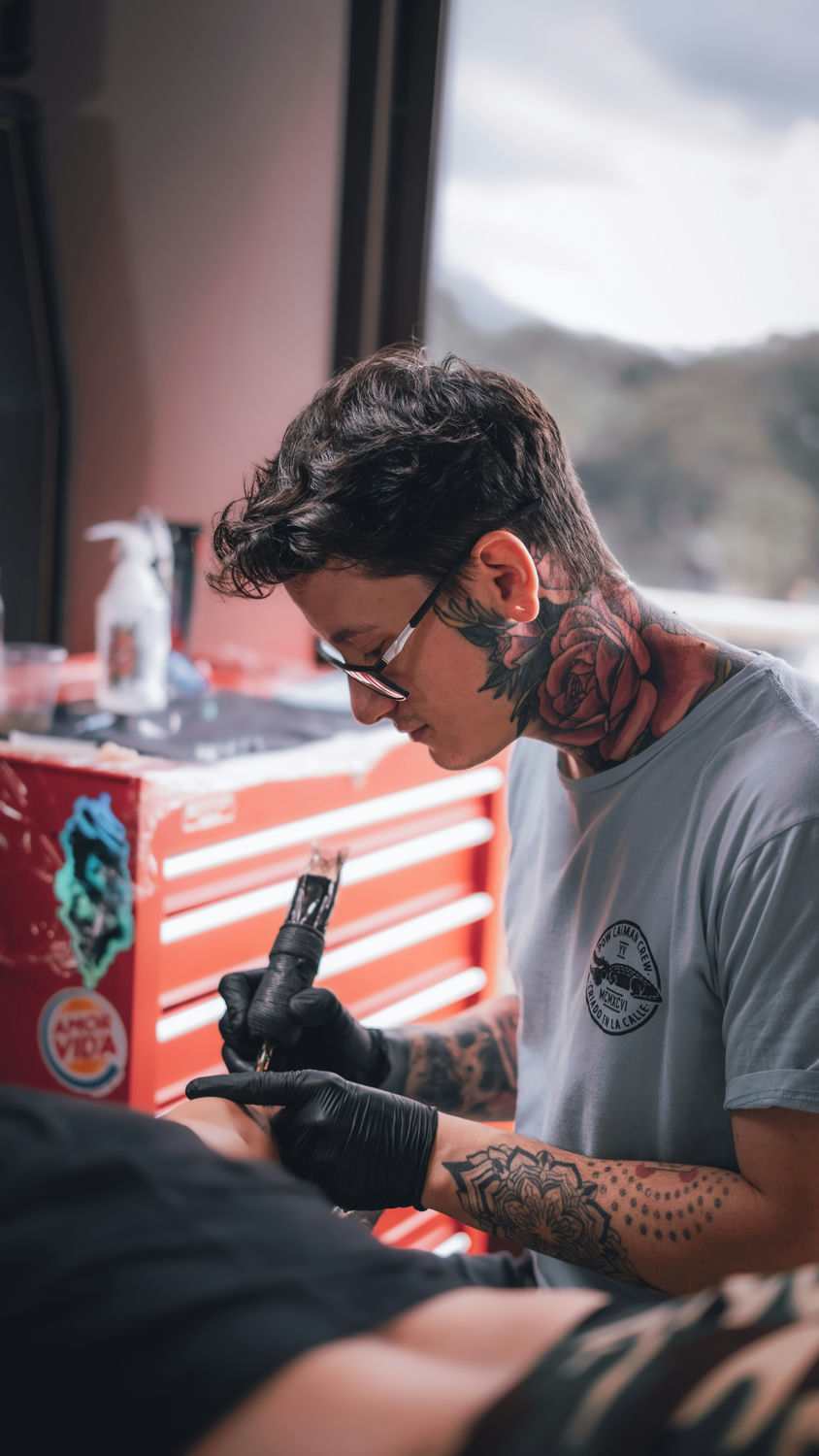
Daniel, you work in such diverse styles as realism, anime, neo-traditional, fine line, and even lettering. How did you come to this variety? What was the starting point of your career? Did you have any mentors?
- Since I started as a tattoo artist, I was always curious to learn different styles. Maybe what led me to this was the indecision of not knowing what I liked. I was experimenting with the styles that caught my attention, and little by little I was studying them and learning to handle them. At some point in my career, I thought that doing several styles could be a disadvantage, but today I see it as a tool that allows me to give more variety to my work and to fulfill the project that my client has in mind, whatever style he wants.
I started tattooing in 2016. In Venezuela, the culture of the "apprentice" does not exist, so when I started, I learned by watching videos on YouTube. Hahaha. I could spend hours a day watching videos of how to make lines, how to make shadows, and how to make color. When I had about 5-6 months of tattooing, I had the opportunity to start working in a small studio where I could see other artists and learn from them, although it was not until 2018 that I was selected by what I could say was, at that time, the best studio in my country, "Loyalty Tattoo Studio." There I could share with artists like Roberto Carlos Sanchez, Allen Brunn, Adrian Rodriguez, Emersson Pabon, and Johan Castillo. I could say that they taught me a lot of what I know today.
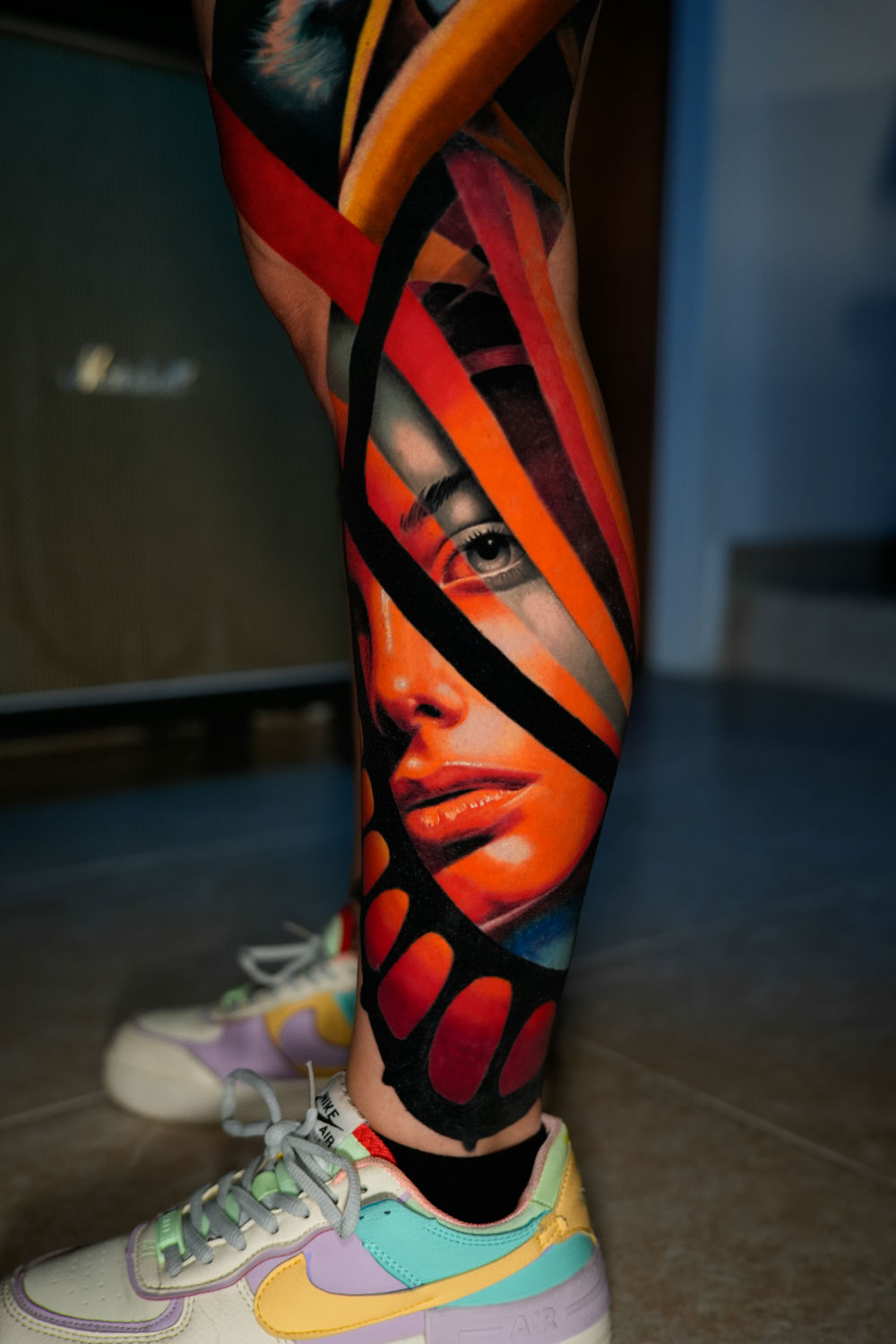
How do you manage to combine such different styles and techniques in your work? Do you have a favorite style where you feel most confident?
- I could say that the style with which I feel most comfortable is neo-traditional. I like to do tattoos with different line weights, colorful, vibrant, and that flow with the body. Color tattoos would never bore me. I think that the choice of style depends on the idea and the creative freedom that the client gives me. If I feel that in a realistic project I can include some illustrative element or combine it with lettering or something else, then I will definitely do it.
In your opinion, what trends are currently dominating the tattoo industry, and how do they influence your choice of styles?
- Unfortunately, I am a person who does not like trends, but I agree that something that can be fashionable will always have its audience. So when I see something in trend and that I really like, I experiment a little in my designs to create something unique and different. I could say that something very fashionable nowadays is precisely the combination of realistic figures with very illustrative and graphic elements. Also, I have seen in many conventions that very surrealistic compositions are always present.
Which anime characters or stories most often inspire your tattoo creations?
- The most famous anime characters are always a good source of inspiration for tattoos. Currently, I have several projects that include characters from "Naruto." Soon, I would like to make a full leg sleeve project of my favorite anime, "Dragon Ball."
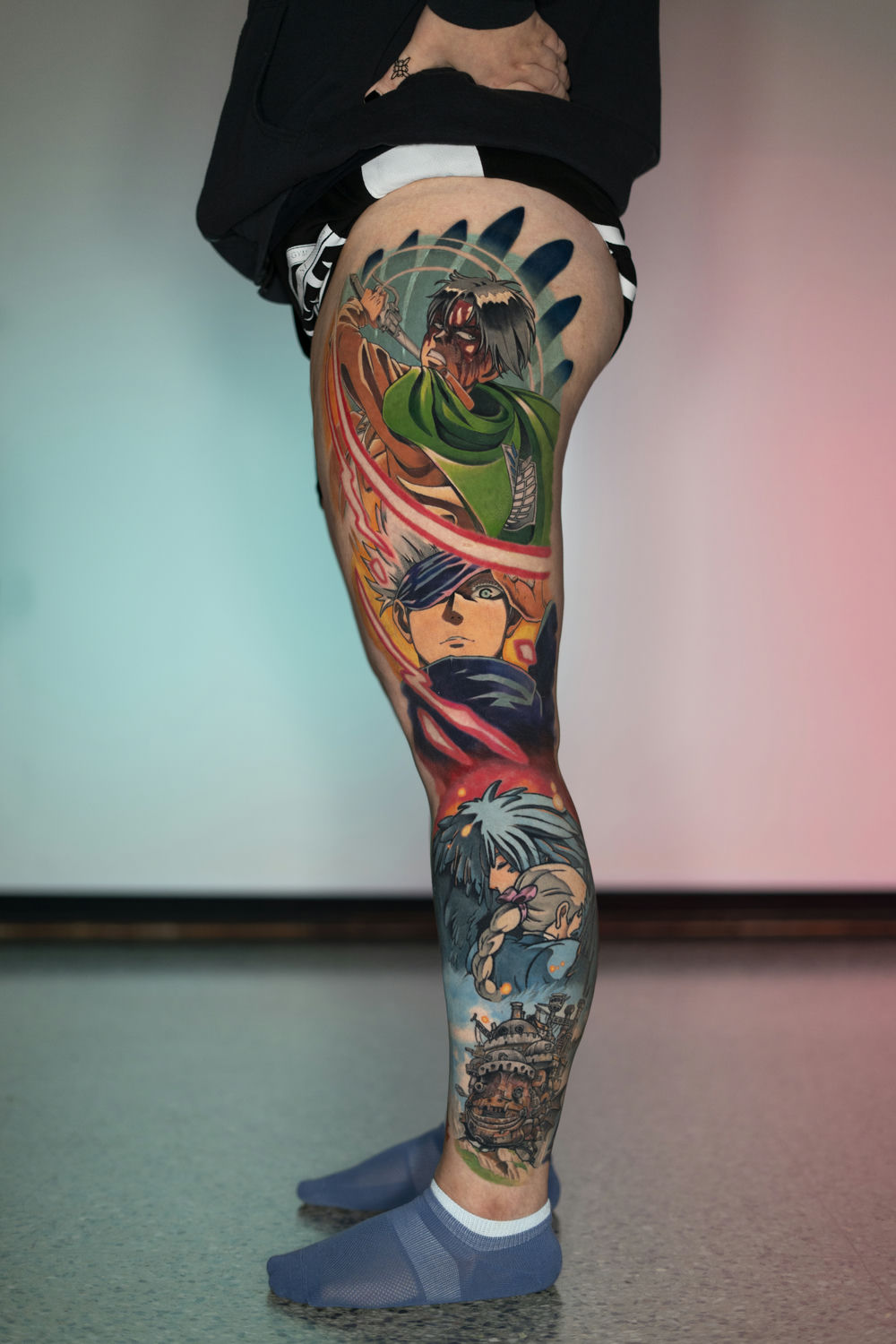
You work with realism, which requires great attention to detail. What techniques do you use to achieve the highest accuracy in this style?
- Nowadays, there are many ways to automatically make stencils for tattoos, but this leaves a lot of room for interpretation and possibly mistakes. That's why I always prefer to make my stencils by hand (but in Procreate). This also helps me to make a previous study of the design. A little trick I use is to overexpose the image to reveal details in the shadows and underexpose it to give details in the highlights, so I can have the highest level of detail possible in my stencil, and I take it to the tattoo.
Lettering is often seen as a separate discipline in tattoo art. How did you develop your skills in this area?
- Well, many years ago, I used to do graffiti. This is where my love and facility for lettering come from. In fact, this was one of the first styles I studied when I started tattooing and with which I won my first award at a tattoo convention. Lettering is something I have been practicing daily, designing calligrams and painting pictures where I include calligraphic elements in some way. My goal is to be able to combine it in an original and unique way with other tattoo styles.
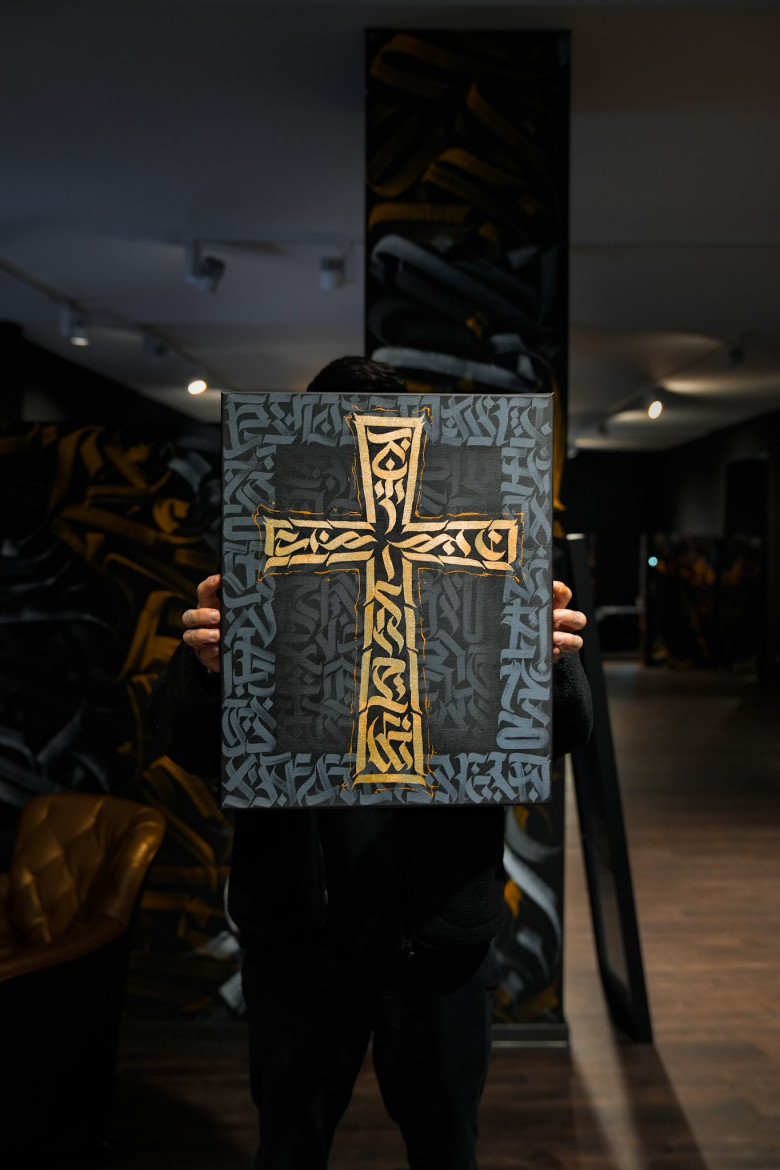
Tell us about your approach to creating unique designs for your clients. What is the process from idea to final sketch?
- The first step is always to talk to my client, let him tell me his ideas and what he would like to represent, and also show me in what style he would like his tattoo. Having all this information, I start designing. I always try to give protagonism to a main element, completing the rest of the composition with two more elements in the background to give a sense of depth. I like to try different options, so I always end up making two proposals to see which one my client likes more.
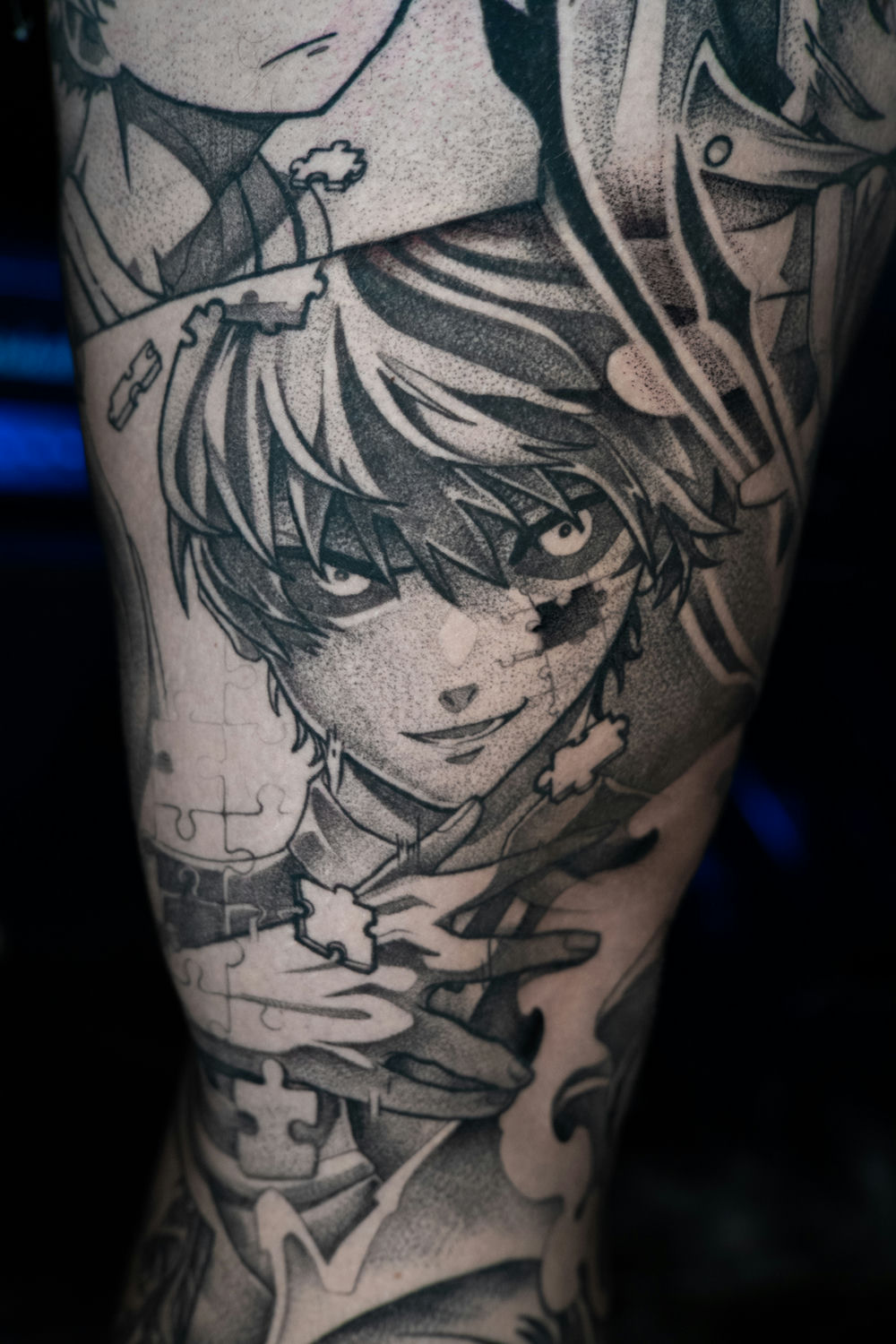
You frequently participate in tattoo conventions. Tell us about your experience and results. Which of these conventions stood out the most to you?
- I think going to conventions is a very good way to keep growing. Being surrounded by many more artists also inspires you to keep improving and helps you to be more creative and expand your mind. The process of preparing for a convention is not just making a tattoo and participating in a category; it takes months of study and practice in order to get the best result. I like to evaluate in which category I am going to participate and design several ideas until I am completely convinced of what I will tattoo those days of the convention.
This preparation is what has led me to obtain important awards in each of the conventions I have participated in. Although it's not just about going to win a prize, it's also about sharing knowledge with amazing artists, enjoying the art that each one does, and enjoying the event. The last convention that took place in my country, "Tatuart Music Fest," I could say was one of the best conventions I've been to because it was a pretty big event that combined the art of tattooing and music. Here, many artists who had been out of Venezuela for a long time could meet again after many years, plus singers and bands that gave a very different atmosphere to what is an ordinary tattoo convention.
Are you planning to participate in any international conventions soon? Do you aim to win awards in certain categories?
- Yes, I have the dream of participating in a very big international convention; it could be the Milano Tattoo Convention or the Planetarium in France. It would be amazing to get a prize in one of these big and prestigious conventions.
Masterclasses are becoming increasingly popular among tattoo artists. How important do you think they are for the development of young artists? Do you conduct masterclasses yourself?
- Thanks to social media, I think that currently, in the world of tattooing, there are many more opportunities to learn. I remember when I started tattooing, there was very little information available for people who were starting in this world. Today, many renowned artists offer free information and seminars, either online or in person. This is an opportunity that both new artists and those who have been tattooing for a long time can continue to learn from; it is an opportunity that cannot be wasted. When you are starting in this world of tattooing, it is essential to have good information and trained people so that your artistic growth is much faster.
Of course, I would like to give a masterclass. Even though I feel I still have a lot of things to learn, I could teach everything I know so far, from the basics to some little secrets and techniques that I have learned in these 8 years of my career.
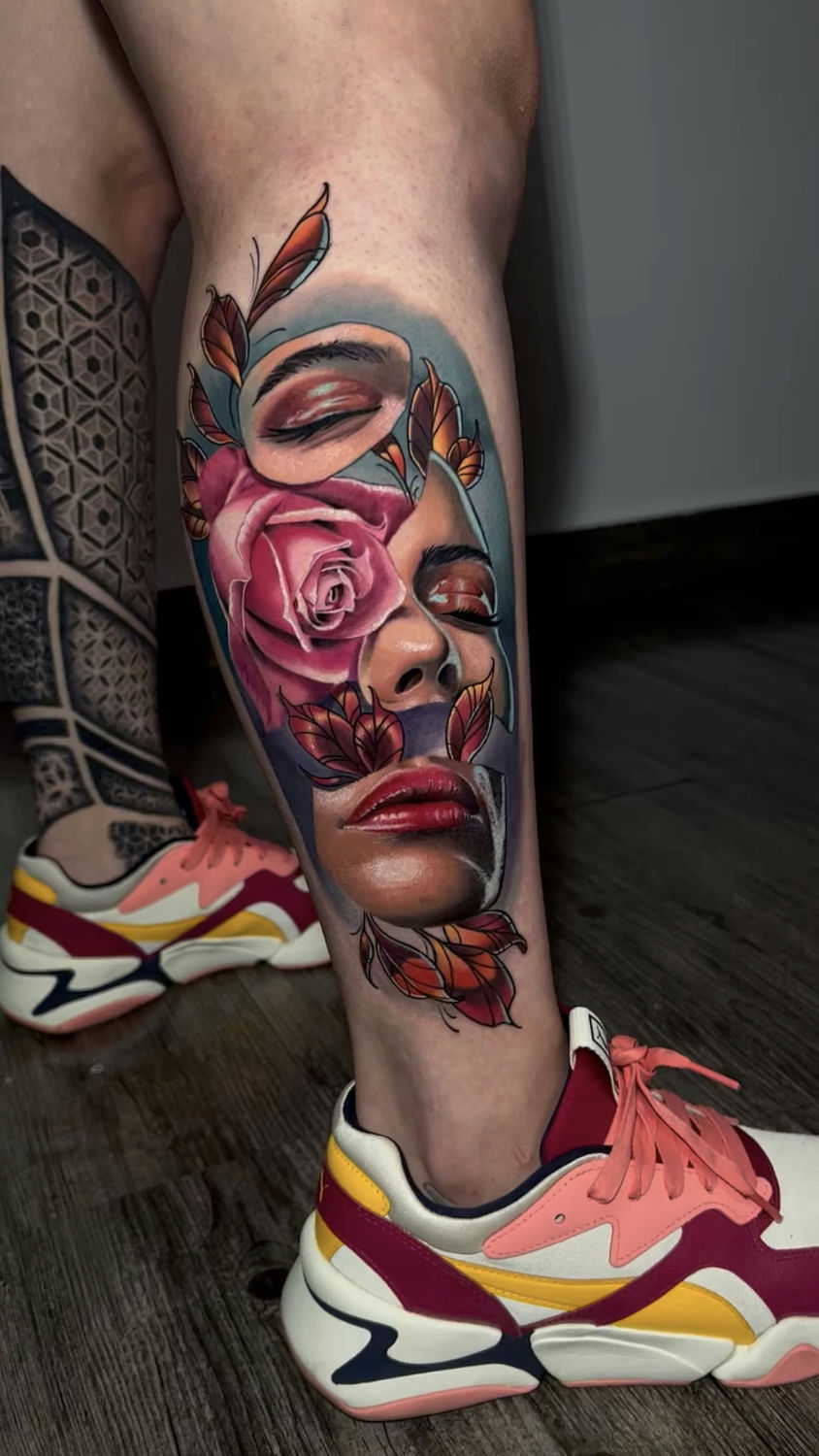
Are you sponsored by any tattoo brands or supply manufacturers? How does sponsorship help you in your work?
- I currently have a sponsorship from the brand Proton. This brand has a wide variety of products for tattooing, from butter, stencil primer, stencil eraser, and others. It's amazing to work with products of the highest quality; all this positively influences both the development of the tattoo and its care and healing, as it is also very important for us to have an optimal result in each piece.
What is most important to you when choosing tattoo equipment and materials? Do you have any favorite tools that you can’t live without?
- I think the most important thing is to always work with quality materials, as they make all the work easier. From the machines, inks, and needles, my setup is always the FK Irons Flux Max 4.0 Stroke, Kwadron needles, stencil primer, and butter Proton, and world-famous inks, and at the end of the tattoo, I use Tattoo Finish.
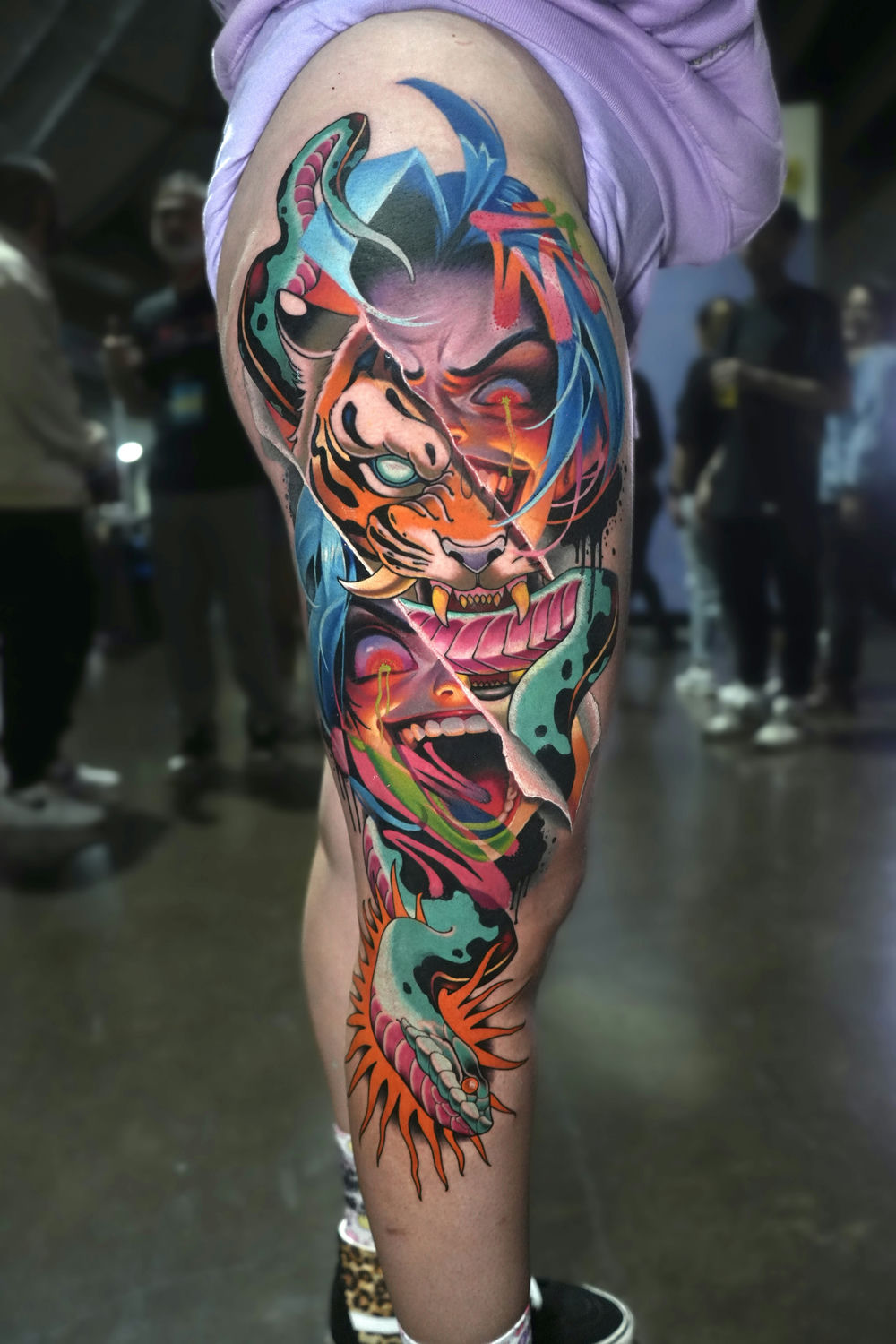
The tattoo industry is very competitive. How do you maintain your popularity and attract new clients?
- Nowadays, the tattoo world is very different from 4 years ago, so the way in which the client consumes our work has changed a lot since then. Some years ago, it was enough to post a picture of the finished tattoo to reach the public. Now, the client also likes to see the process behind each tattoo, each design, even a painting or some artistic expression we have. We simply have to show all this so that our customers remain attracted to our work. We have to evolve along with social networks, since they are one of the main ways we have to bring our work to the public.
How has your vision of art changed since you started your career?
- At the beginning, I saw tattooing as just something that caught my attention and I liked it. As time went by, I realized that this was what I was really passionate about, what I now dedicate most of my life to. Everything I give to tattooing is rewarded a thousand times more; that's why I could do this all my life. I feel very fortunate to be able to live from what I like and what I enjoy, to make friends thanks to tattooing, to meet people and their stories, and to be able to know many countries just to make art. So, if someone asks me if it has been worth it, I would say yes!
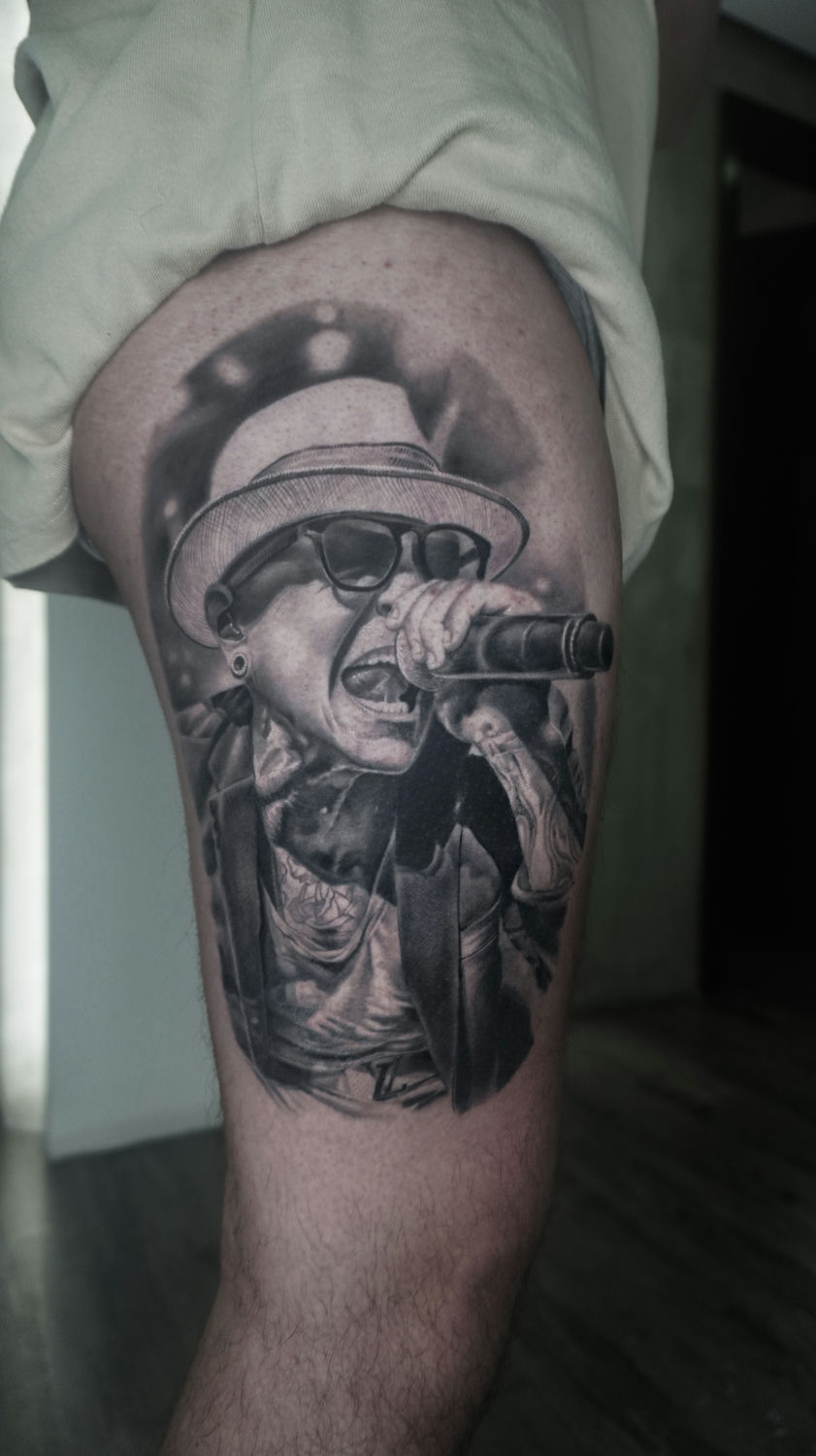
Which tattoo artists or other artists have had the most influence on you in your development as an artist?
- It’s very difficult to answer this question because I could make an endless list, but I could mention some tattoo artists like Rebecca Blair, Mystik, Victor Chill, Jean Paul Maratt, Steve Moore, Mitchell Allenden, and Oash, plus some illustrators like Dave Greco, Fran Garcés, and Marc Brunet.
What personal achievements in your career are you especially proud of?
- About a year ago, there was a great convention in my country. In the jury of this convention were international artists like Arlo DiCristina, Ryan Ashley, Sasha Okharin, Leo Acosta, Stefano Alcantara, and Remis. At this Expo, together with my colleague Jose Farias, we did a project of 11 hours a day for two consecutive days, and we were able to win “Best Collaboration,” “Best of Day Sunday,” and “Best of Show.” This could be said to be the greatest achievement of my career so far.
What projects or ideas are currently inspiring you? Are you planning to work in a new style?
- One of the projects that I'm about to finish is a complete leg in color realism. It was an idea that came to me after visiting a tattoo convention in Germany. It's a project that has me quite excited because I had never done a leg in this style. I am currently studying lettering again, more specifically calligrams and calligraffiti. I want to combine it with realism or with some other style that I manage. I think that a new part of my graphic line as an artist will come out of it.
How do you see the development of your career in the future?
- For me, this is a career in which you never stop learning. I want to continue studying and painting to improve even more in my work, doing big projects in which I can express the styles I like. In the future, I would like to visit big and important studios, full of excellent artists. I also want to have parallel projects to tattooing because I am a person who also likes other things like cooking, photography, music, among many others.
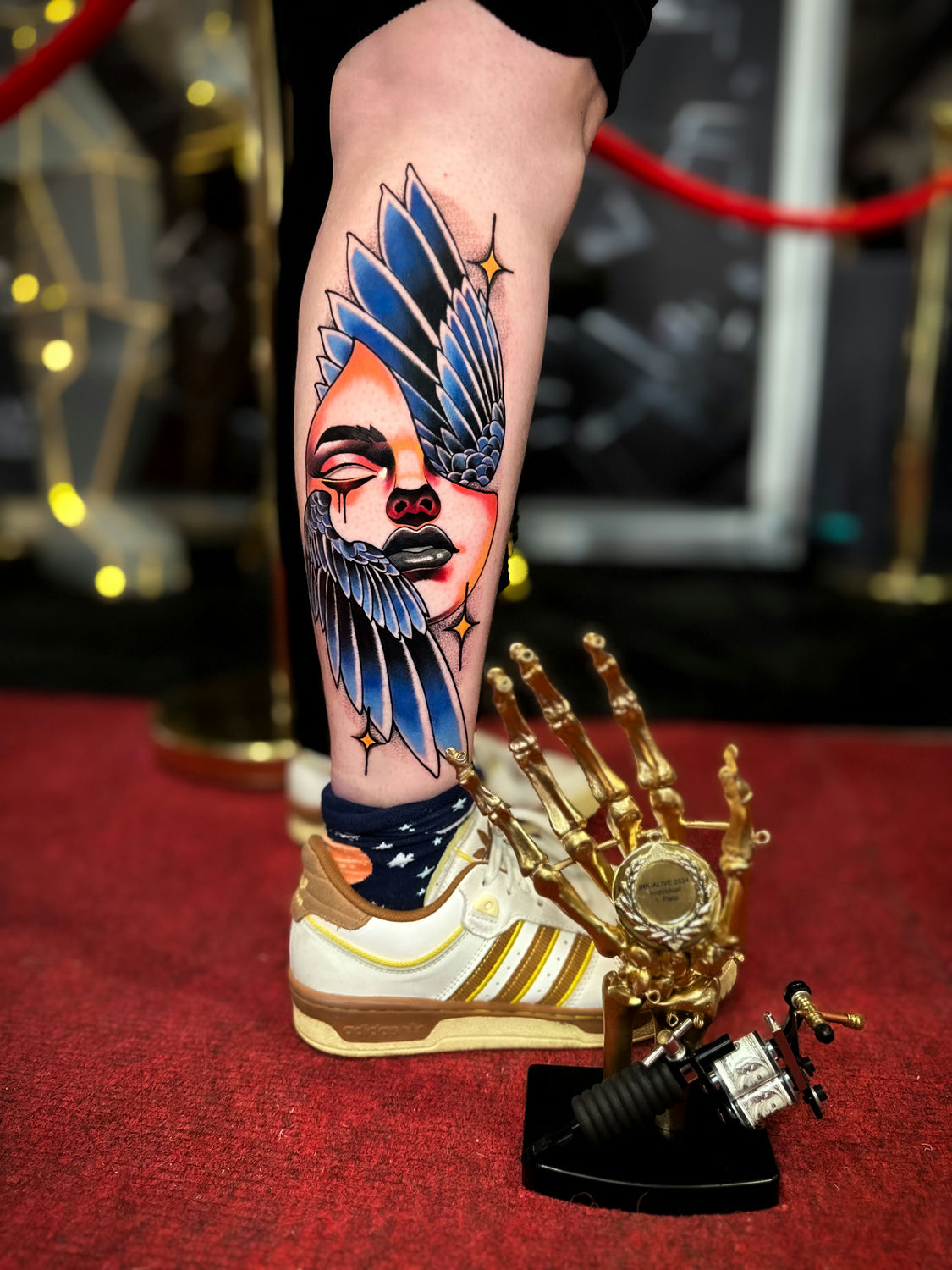
With your experience, what advice would you give to beginner tattoo artists?
- Something very important when you start tattooing is the studio, constancy, and dedication. It is essential to have a good base in drawing because it will help you to understand everything in tattooing. It is important to always keep creating to learn new things. I would constantly tell you to take advantage of the amount of information that exists today, and that if you want to live from this, you simply have to be constant because it will be worth all the time you are going to invest in this career full of art.
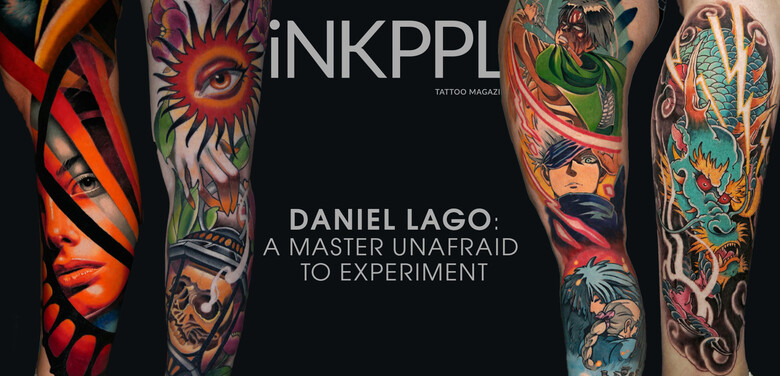







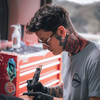
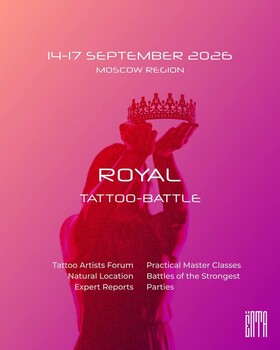
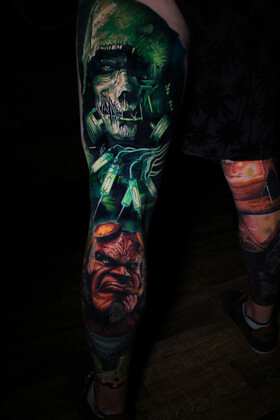
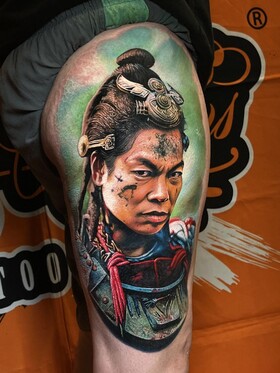
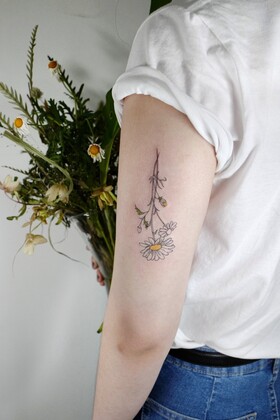
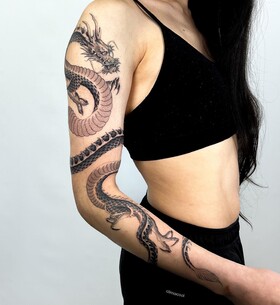
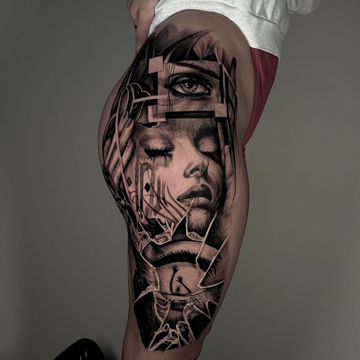
Comments (2)